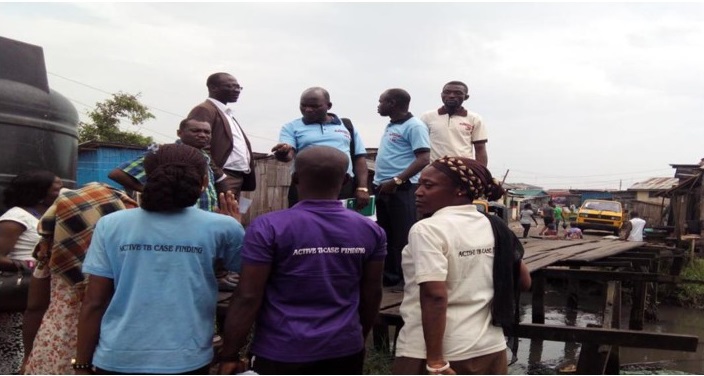
The Association for Reproductive and Family Health (ARFH) became the Principal Recipient(PR) for the Global Fund (GF)TB grant in July, 2009 – Dec, 2018. The grant was run in phases. Round 5 Phase 2 TB grant commenced in July 2009 and terminated in June 30th 2010. The SRs under ARFH were; National TB and Leprosy Control Program (NTBLCP) for Drug Susceptible (DS) TB intervention, Institute of Human Virology (IHVN) who was responsible for the Multi-Drug Resistant (MDR) component. Also ILEP partners (GLRA, TLM, NLR), and Health Alive Foundation (HAF) for the community component. Subsequently, under Round-9 phase-1, IHVN became a PR for MDR grant based on the recommendation of the CCM because of their experience with laboratory issues while ARFH remained the PR for Drug Susceptible (DS). Focus of Round 5 & 9 TB grant was on DOT and Microscopy expansion as well as addressing the major challenges with drug management and distribution, while the New Funding Model(2015-2018) was more on ‘’INVESTING FOR IMPACT AGAINST TUBERCULOSIS’’. Highlights of the phases are as shown below.
Round 9 Phase 1 TB Grant: 1st July 2010 – December, 2012.
Project Goal:
To reduce significantly the burden, socio-economic impact, and transmission of TB in Nigeria
Project Objectives:
- To promote behavioural change about TB in the community
- To pursue High Quality DOTS expansion and enhancement
- To scale-up TB/HIV collaborative activities and strengthen TB/HIV integration
- To Strengthen MDR-TB Prevention and Control
- To strengthen the technical and managerial capacity of the National Tuberculosis and Lep-rosy Control programme
Activities:
- Improving case detection practices through DOTS
- Enhancing the technical and managerial capacity of the NTBLCP and other implementing partners
- Strengthening the existing services and establishing new peripheral DOTS centres
- Training of public health workers in DOTS
- Training of private sector health workers in DOTS
- Training of lab technicians in case detection;
- Training of public health staff in program management;
- Training of community volunteers in knowledge of cause, transmission and curability of TB;
- Involvement of community volunteers and treatment supporters in the management of TB patients
- Monitor and manage development of Multi Drug Resistant TB; and
- Identification and treatment of patients with TB/HIV co-infection.
- Strengthen supervision and M&E activities;
- Strengthen partnerships to advocate for increased government commitment and ownership of the programme,
- Inclusion of the private health care providers and community in the delivery of DOTS.
